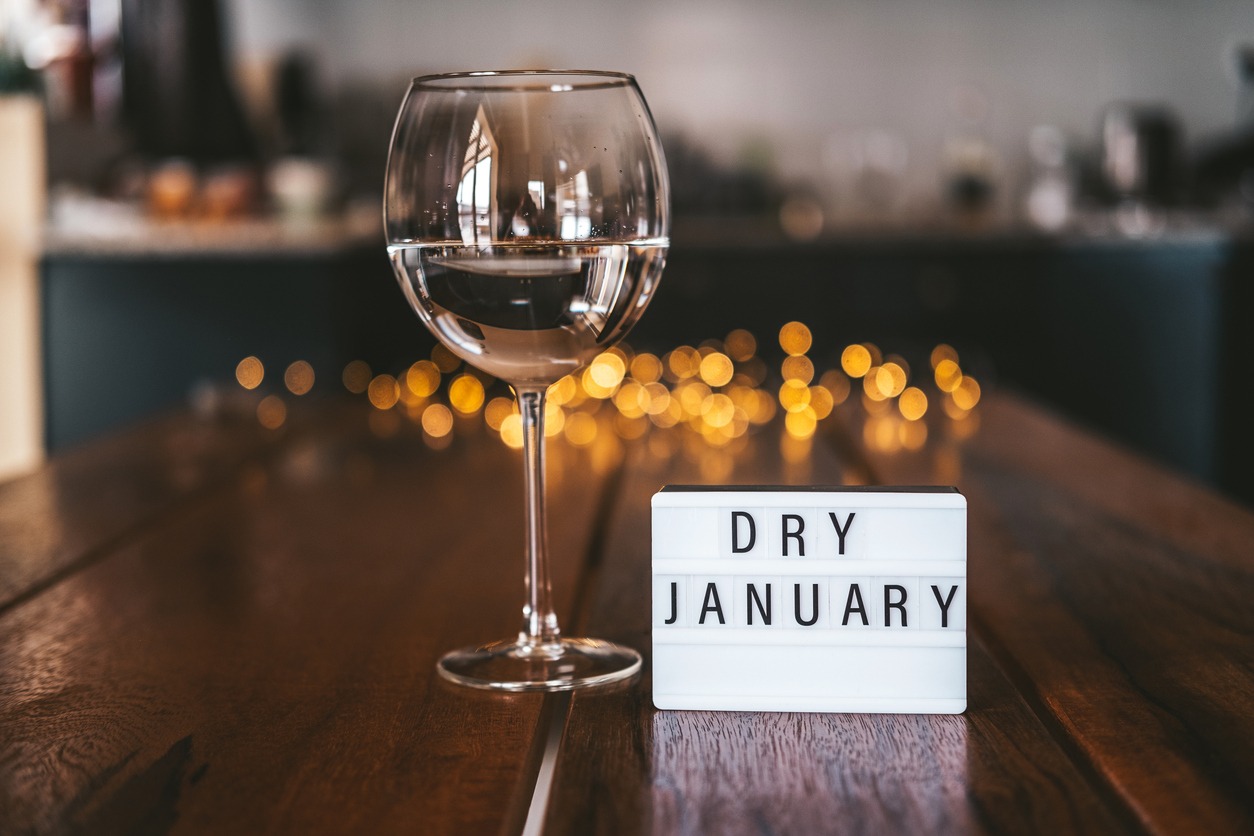Dry January is often considered as a time to reset after the holiday season, prioritize health and save money by forgoing alcohol for the month. However, there’s another, less talked about benefit — the positive environmental impact of giving up booze for 31 days. By opting for a sober start to the year, you’re not only helping yourself — you’re giving the planet a much-needed breather, too.
Reduced Carbon Emissions
Alcohol production — especially for beverages like beer, wine and spirits — can have a surprisingly high carbon footprint. From the agricultural resources needed to grow ingredients, like barley, grapes and sugarcane to energy-intensive fermentation, distillation and transportation, the emissions add up. Participating in Dry January indirectly reduces the demand for these products, which means less energy consumption and fewer greenhouse gas emissions emitted into the atmosphere.
Lower Water Usage
Producing alcohol is incredibly water-intensive. Large breweries use approximately two to four barrels of water to make just one barrel of beer. Smaller ones tend to be less water-efficient, using as many as 20 barrels of water per barrel of beer.
Skipping alcohol effectively conserves water that would have otherwise been used in production. Water scarcity is a pressing issue and, this seemingly small change, can contribute to a larger global effort to protect precious resources.
Minimized Packaging Waste
Think of all the bottles, cans, labels and caps involved in alcohol packaging. The average American produces almost 5 pounds of waste daily. While you can recycle many of these materials, the recycling process itself requires energy and resources.
Additionally, not all packaging ends up going to recycling facilities. It’s estimated a significant portion of glass, aluminum, and even plastic, waste still ends up in landfills. Reducing your consumption directly minimizes the demand for single-use packaging and its environmental toll.
Encouraging Sustainable Alternatives
Dry January often leads people to explore nonalcoholic beverages, many of which are crafted with sustainability in mind. Drinks, like kombucha or herbal teas, usually have a much smaller environmental footprint. Plus, choosing homemade alternatives, like infused water or fresh juices, eliminates packaging waste entirely.
Fewer Resources Used in Transport
The transportation industry was responsible for 28% of greenhouse gas emissions in 2022, making it the largest contributor. Alcohol is a global industry, with many beverages being shipped across countries, or even continents, before reaching your local store. These long transportation routes contribute to CO2 emissions from trucks, ships and planes. Not purchasing alcohol reduces the demand for these long-haul shipments, contributing to lower overall emissions.
Sparking Awareness for Sustainable Living
Dry January is often a catalyst for broader lifestyle changes. Many people use the month to reflect on their habits and make healthier, more eco-conscious decisions in other areas of life, like cutting back on meat or using public transport. This ripple effect can lead to a more sustainable lifestyle long after January ends.
How to Maximize Your Green Impact
If you’re participating in Dry January and want to make an even bigger environmental difference, here are a few ideas:
- Support eco-friendly brands: Choose nonalcoholic beverages from companies committed to sustainability.
- Go local: If you do buy drinks, opt for locally made nonalcoholic options to reduce transport emissions.
- Experiment with DIY drinks: Make your own nonalcoholic creations using seasonal and organic ingredients.
Keep the Positive Effects Going
If you enjoy Dry January, feel healthier and love knowing you contributed positively to the planet, why not keep the momentum going? You don’t have to completely cut out alcohol to continue reaping the benefits. Instead, consider limiting your intake to one or two drinks a day — or even just a few per week. Small changes like these can still have big impacts on your health and the environment.
Drinking less reduces the burden on your liver, lowering your risk of chronic conditions, like heart disease and high blood pressure, and even improving mental clarity and focus. Alcohol also disrupts sleep patterns, so cutting back can help you enjoy deeper, more restorative rest. Plus, fewer drinks means fewer calories, which can help you maintain a healthy weight.
Whether you stick with a fully alcohol-free lifestyle or adopt a more mindful approach, the health and environmental benefits are undeniable. It’s about balance — making choices that feel right for you, while prioritizing your well-being and the planet’s future.
Cheers to a Healthier Planet
Dry January isn’t just about personal wellness — it’s also a chance to give back to the planet. By taking a break from alcohol, you actively reduce your carbon footprint, save water and minimize waste. This small, simple change can spark a chain reaction of positive environmental impacts, proving when you prioritize mindful choices, everyone wins.
Source link
Mia Barnes biofriendlyplanet.com



